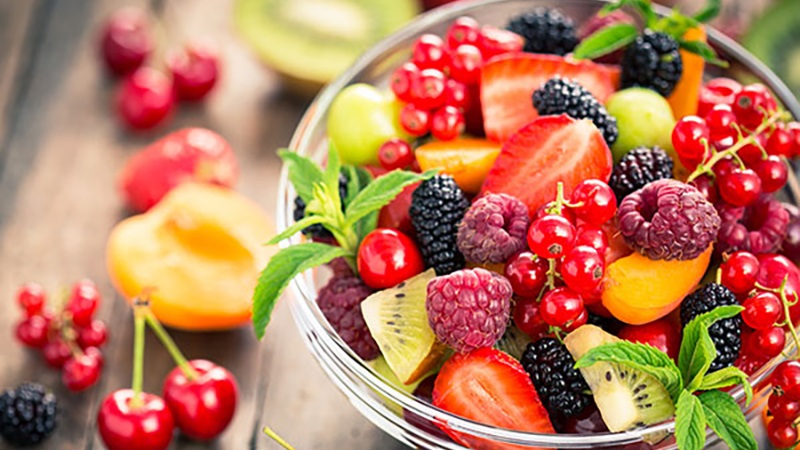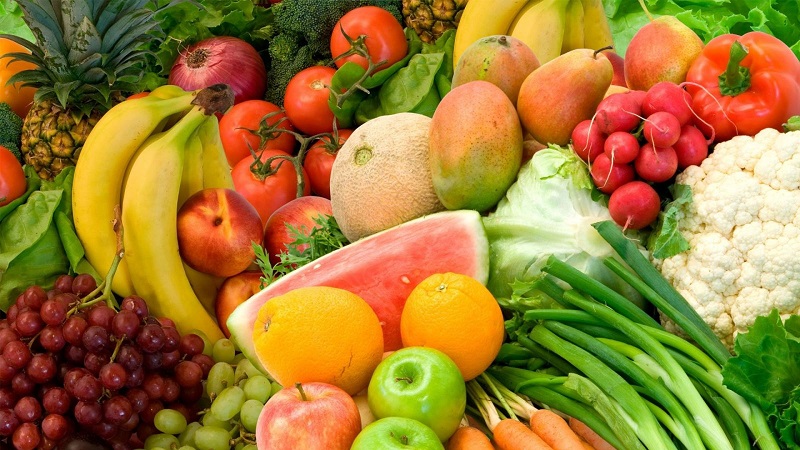As society progresses, we increasingly focus on health and beauty care, and weight loss is one of the issues that most people are concerned about. There are many popular diets, and one worth mentioning is the fruit-only diet.
So, what is a fruit-only diet, and should we adopt this regime to lose weight? Let’s find out together in this article!
1 What is a Fruit-only Diet?
 What is a fruit-only diet?
What is a fruit-only diet?
A fruit-only diet, also known as fruitarianism, is a highly restrictive vegan diet. This diet does not allow the consumption of animal products, including dairy products. Those who follow this diet mainly consume fresh fruits.
Vegetables, nuts, and seeds can also be consumed in moderation. Foods such as grains, legumes, and cooked foods should be limited or eliminated. In particular, you need to avoid cooked fruits.
In a fruit-only diet, at least 50-70% of your calories should come from raw fruits such as berries, citrus fruits, melons, and stone fruits.
2 Benefits of a Fruit-only Diet
Adopting a fruit-only diet offers several health benefits:
Promotes Healthy Skin
First, this diet boosts hydration. In addition to being rich in nutrients, fruits contain a high amount of water. Consuming a large quantity of fruits enhances hydration, resulting in plump and glowing skin, which is what women desire.
Supports Weight Loss
A fruit-only diet also encourages the consumption of whole, nutritious foods. Fruits are known to be extremely healthy as they are packed with antioxidants, vitamins, minerals, electrolytes, phytonutrients, and fiber. The high fiber content in fruits promotes a feeling of fullness, which can lead to weight loss.
 Benefits of a fruit-only diet
Benefits of a fruit-only diet
3 Is a Fruit-only Diet Truly Healthy?
 Is a fruit-only diet truly healthy?
Is a fruit-only diet truly healthy?
While a fruit-based diet can offer certain nutritional benefits, it also carries some serious risks. Since fruits are typically low in fat and high in water, one can consume a large quantity without worrying about excessive calorie intake.
However, a fruit-only diet has several drawbacks:
Firstly, it can lead to health complications. Eating large amounts of fruit increases sugar intake and affects insulin sensitivity, posing dangers for diabetics. It can also be harmful to those with prostate and kidney problems.
Additionally, this diet can cause nutritional deficiencies. Our bodies require protein and fat, two essential macronutrients that may not be adequately supplied by a fruit-only diet.
Excluding grains can lead to a lack of B vitamins, while limiting vegetables and dairy products can increase the risk of vitamin D and calcium deficiencies. Eliminating animal products can result in a shortage of vitamin B12. These nutrient deficiencies can cause complications such as anemia, fatigue, immune disorders, and osteoporosis.
A fruit-only diet is one of the most restrictive diets. Relying primarily on fruits can lead to boredom and cravings for other foods. To maintain optimal health, it is not advisable to solely follow a fruit-only diet; instead, include other food groups to ensure your body receives all the necessary nutrients.
4 How to Implement a Fruit-only Diet
Foods to Eat
 Foods to eat
Foods to eat
According to the USDA Dietary Guidelines for Americans 2020-2025, it is recommended to consume a variety of fruits, vegetables, grains, dairy products, and protein sources daily to maintain a balanced and healthy diet.
Dark green vegetables, leafy greens, red and orange vegetables, and legumes (beans and peas)…
Fruits, especially whole fruits. A fruit-only diet typically revolves around the following seven groups of fruits:
-
Tart fruits: Lemons, limes, grapefruit.
-
Acid fruits: Raspberries, mulberries.
-
Sweet fruits: Bananas, grapes.
-
Oily fruits: Avocados, coconuts, olives.
-
Vegetable-like fruits: Cucumbers, pumpkins, squash.
-
Nuts and seeds: Pistachios, cashews, almonds, walnuts.
-
Sunflower seeds, pumpkin seeds.
Whole grains, preferably whole grain products.
Dairy products or soy-based alternatives.
Seafood, lean meats, poultry, eggs, and soy products.
Healthy oils.
Foods to Avoid
 Fruits containing saturated fat
Fruits containing saturated fat
Foods containing saturated fat, trans fat, added sugars, and sodium are not recommended when following a fruit-only diet as they can lead to unwanted side effects.
Some foods to exclude from this diet:
-
Alcoholic beverages
-
Animal fats
-
Fatty meats, animal-based oils
Diet and Exercise Guidelines
 Diet and exercise guidelines
Diet and exercise guidelines
When on a fruit-only diet, your body may not receive adequate nutrition and may experience fatigue. Therefore, it is best to avoid strenuous and demanding physical activities. Gentle yoga practices are more suitable when following this diet.
Fruits should be thoroughly cleaned and sanitized before consumption to eliminate bacteria, as they are typically eaten raw. Additionally, always ensure you are meeting your nutritional requirements and only follow this diet for a short period.
This article provides insights into the fruit-only diet. We hope you found it helpful. Wishing you good health!
Source: Vinmec.com


































